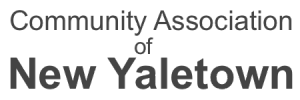
Artist rendering of proposed tower at Emery Barnes Park. The rezoning was ruled illegal.
Court Quashes Rezoning & Land Swap in New Yaletown
In a landmark decision, BC Supreme Court ruled that Vancouver’s development approval process was unfair to the public. The judgment against the City quashes the bylaws and development permits relating to two massive downtown towers near Emery Barnes Park in New Yaletown, halting the development.
Siding with the Community Association of New Yaletown (CANY), Justice Mark MacEwan also found that the City had violated the Vancouver Charter in approving the rezoning.
Where can I learn more about the lawsuit and the ruling?
The Globe and Mail: B.C. Supreme Court quashes approval for Vancouver tower deal
CBC: Emery Barnes Park land swap with developer, City of Vancouver thrown out by courts
Vancouver Sun: B.C. judge quashes land swap between Vancouver, Yaletown developer
The Province: Judge tosses out development permit for 36-storey Yaletown condo tower
Vancouver Courier: Yaletowners beat Vancouver city hall
Metronews Canada: B.C. Supreme Court quashes controversial Yaletown development
CityHallWatch: Yaletown Residents Win Case
What was the judge’s reasoning in CANY’s win?
Read the judge’s Reasons for Judgment (pdf).
What makes the Vancouver development approval process unfair?
The ruling states strongly that the City’s development approval process fell far short of the standard of fairness in several ways:
“The procedure the City adopted was unfairly restrictive, in presenting the public with a package of technical material that was opaque, compared to the material presented in court, in limiting comment on the integrated nature of the project, and in failing to provide an intelligible (i.e. where do the numbers come from?) financial justification for it.”
“The City has taken an unduly restrictive view of the discussion that should have been permitted to address the true nature and overall cost/benefit” of the project to the City and its residents.
What would make a public hearing fair?
Justice MacEwan writes that it is “obvious” that:
The public hearing should be “as fair, open and transparent as the nature of the overall project dictates. To be fair, it cannot be conducted on the basis that the public will get just enough information to technically comply with the minimum requirements of a public hearing. The desire of those who have brought the project along to get past the approval stage cannot be allowed to truncate the process.
“A public hearing is not just an occasion for the public to blow off steam: it is a chance for perspectives to be heard that have not been heard as the City’s focus has narrowed during the project negotiations. Those perspectives, in turn, must be fairly and scrupulously considered and evaluated by council before making its final decision.”
How did the City violate the Vancouver Charter?
In a decision that may have impact far beyond New Yaletown, Justice MacEwan also ruled that contrary to common practice in Vancouver, a property may not be rezoned to conflict with the City’s own Official Development Plan (ODP) for the area. Referring to the Downtown Official Development Plan (DODP), he writes:
“Whether or not the DODP applies to a particular property depends on whether or not the property is within a specified area, not its zoning. To interpret it otherwise would defeat the purpose of an official development plan and would also permit Council to unilaterally amend an ODP without adopting a bylaw as required by section 562″ of the Vancouver Charter.
“Since the City did not amend the DODP and the rezoning bylaw is in direct conflict
It is a violation of the Vancouver Charter to rezone a property in a way that conflicts with an ODP, without correcting that conflict by also amending the ODP bylaw. Yet this practice is common in Vancouver rezonings. Will the City now abide by its own Official Development plans?
What impact will this ruling have on the two properties?
The ruling essentially resets things back to the way they were before the first public hearing about the developments.
The City still owns 508 Helmcken, the site of Jubilee House. Developer Brenhill still owns its property at 1077/1099 Richards, which is currently under construction. The development permits for both properties have been quashed, as have the bylaw changes associated with the development.
Does this ruling mean a loss of needed social housing?
No. While the City claimed in the public hearings that these developments would provide much-needed social housing, this was simply not true. No social housing was ever involved in any of these developments. No increase in “low cost” housing was planned either. All that was planned was a replacement of the 87 existing units at Jubilee House. Note that in their public statements now, the City and developer Brenhill no longer refer to these developments as providing social housing. That too was a sham.
What’s next?
It is CANY’s hope that this ruling will change the way that the City involves residents in the development process. Not just for these two developments. Not just in New Yaletown. Full and lucid disclosure of all relevant information, an open discussion with an informed public, and council’s scrupulous consideration of public input before making its final decision are needed in all developments. All across the City.
The Community Association of New Yaletown is proud to be a member of the Coalition of Vancouver Neighbourhoods and strongly supports its Principles and Goals for Community Engagement.
Use your voice to help ensure that all future developments get the full and fair public scrutiny that’s now required by law.
